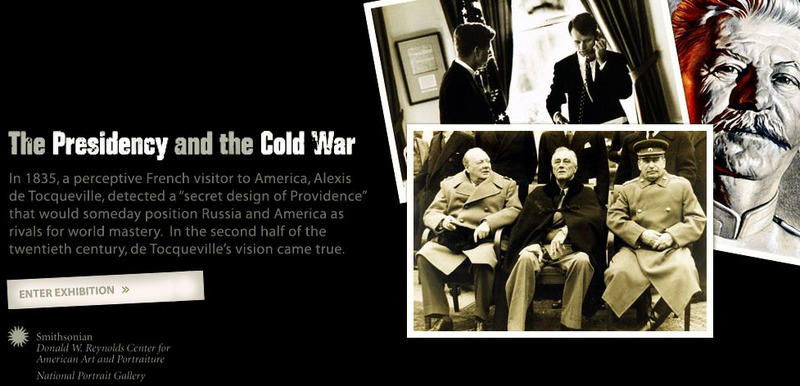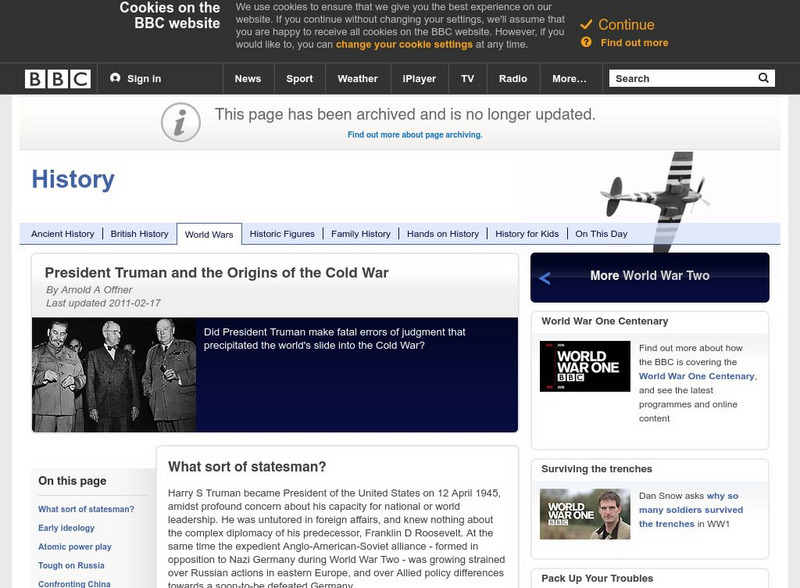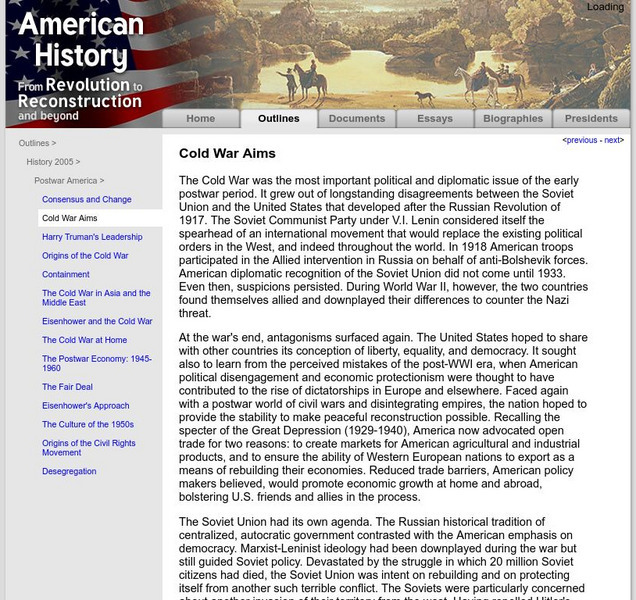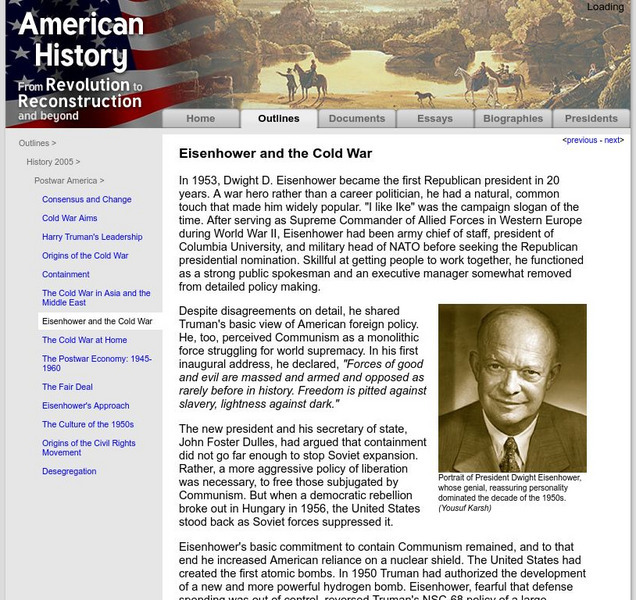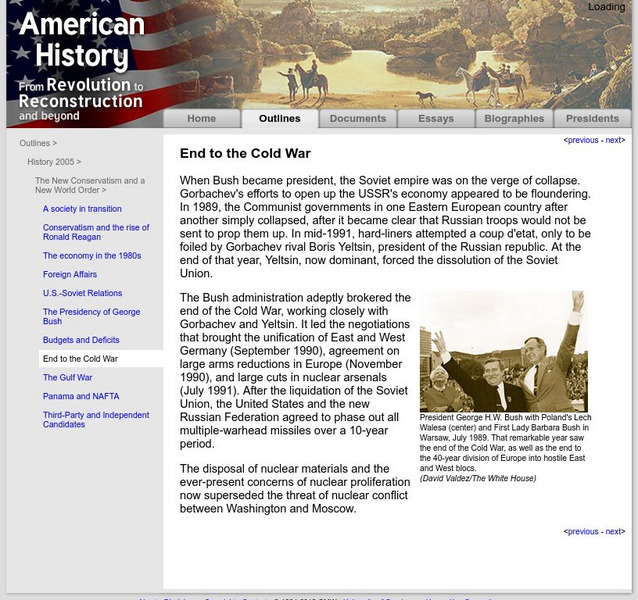Smithsonian Institution
Cold War
The Cold War was not necessarily always cold in temperature, but the relationship between the United States and the Soviet Union sure was frigid! Scholars read various passages, view exhibition graphics, and observe an artifact from the...
ProCon
Is Homework Beneficial?
Does homework improve student achievement, or does it increase stress? Scholars use the included debate topics website to prepare for a class discussion or debate about whether homework is advantageous. After reading a brief background...
American Museum of Natural History
A Closer Look at Mars
A website looks at how we know so much about Mars—telescopes, robots, and spacecraft—and the search for martian life. Following the informational text are three questions that quiz pupils about possible life on Mars.
Victoria and Albert Museum
Victoria and Albert Museum: Cold War Modern: Design,1945 70
Museum exhibition canvasses the design of the cold war period. The focus of the exhibition is on making the connections between artistic production of the time and the era's prevailing political and social ideas.
Smithsonian Institution
National Portrait Gallery: The Presidency and the Cold War
View videos, photograph, and renderings of American presidents and their foreign counterparts in this image-rich examination of the post-World War II environment and the cold war that followed it. Includes a review of key foreign-policy...
Smithsonian Institution
National Portrait Gallery: The Presidency and the Cold War: John F. Kennedy
The National Portait Gallery explores the actions of presidents during the Cold War. Here find President Kennedy's decisions during the Berlin Crisis, the building of the Berlin War, and the Cuban Missile Crisis. Watch a video of...
Smithsonian Institution
National Portrait Gallery: The Presidency and the Cold War: Dwight D. Eisenhower
This site from the National Portrait Gallery explores presidential actions during the Cold War. Click on Dwight D. Eisenhower to see how the Cold War was developing and being handled during his presidency. Find out about the Communist...
Smithsonian Institution
National Portrait Gallery: The Presidency and the Cold War: Franklin Roosevelt
This extensive site from the National Portrait Gallery explores presidential actions in relation to the Cold War from the Yalta Conference to the presidency of George H.W. Bush. Click on Franklin Roosevelt to find out about the decisions...
BBC
Bbc: President Truman and the Origins of the Cold War
BBC correspondent Arnold A Offner discusses the role Harry S. Truman played in development of the Cold War. American history from a British point of view.
PBS
Pbs: Wwii Behind Closed Doors: Prelude to Cold War
This article discusses the uneasy alliance maintained by Joseph Stalin, Winston Churchill, and Franklin D. Roosevelt during World War II and the implications of this alliance on the development of the Cold War.
Smithsonian Institution
National Portrait Gallery: The Presidency and the Cold War: Harry Truman
The National Portrait Gallery explores presidendtial actions in regard to the Cold War. Click on Harry Truman to see what actions and decisions he made during his term of office. Read about his meeting with Joseph Stalin at Potsdam, the...
Wisconsin Historical Society
Wisconsin Historical Society: Mc Carthyism, Korea and the Cold War
This article looks at McCarthyism in the context of the Korean War and the Cold War. It is supplemented by original documents and articles from that era.
Curated OER
Cbc.ca: Comfort and Fear Cold War Canada
Following the end of WW11, relations between the Soviet Union and the USA turned hostile and negative. Canada quickly became involved in the Cold War. An overview of this period of spying, propaganda, communist paranoia, and even...
Smithsonian Institution
National Portrait Gallery: The Presidency and the Cold War: Richard M. Nixon
The National Portrait Gallery explores the actions of presidents in regard to the Cold War. Read about the so-called anti-Communist warrior, Richard M. Nixon, and his opening of relations with Communist China. Watch Nixon's speech about...
University of Groningen
American History: Outlines: Cold War Aims
Overview on the postwar Cold War conflict between the U.S. and the Soviet Union.
University of Groningen
American History: Outlines: The Cold War in Asia and the Middle East
Overview outlining the Cold War conflict spread as Communist government's took over in China, Korea and the Middle East.
Other
National Cold War Exhibition: Which Countries Were Involved?
Resource examines the role of various countries during the Cold War. Click on the flags to see the information about the specific countries.
Woodrow Wilson International Center for Scholars
Wilson Center: Cold War International History Project
This site from the Woodrow Wilson International Center for Scholars presents new information and perspectives on the origins of the Cold War, including new findings, views and activities.
Other
Cold War and New Zealand
Describes New Zealand during the Cold War. Looks at New Zealand's political landscape during WWI, WWII, its military interventions, its membership in SEATO, and its antinuclear stance.
University of Groningen
American History: Outlines: Origins of the Cold War
Brief overview of the origins and development of the Cold War.
University of Groningen
American History: Outlines: Eisenhower and the Cold War
Overview of President Dwight D. Eisenhower's Cold War policies.
University of Groningen
American History: Outlines: End to the Cold War
Brief overview of G. W. Bush administration policy and the collapse of the Soviet Union effectively ending the Cold War.
University of Groningen
American History: Outlines: The Cold War at Home
Overview of the profound effect the Cold War had on domestic life and government policy in the U.S.
John F. Kennedy Presidential Library & Museum
Jfk Presidential Library and Museum: The Cold War in Berlin
Article explores the division of Germany and Berlin into two zones, East and West, and delves into President Kennedy's relationship with the Soviets during the Cold War. On June 26, 1963, President Kennedy delivered an explosive speech...




